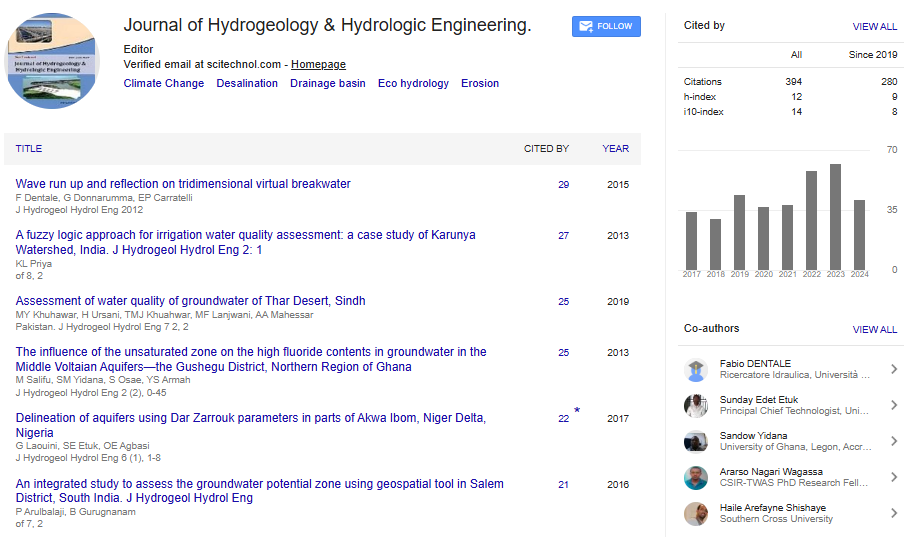Research Article, J Hydrogeol Hydrol Eng Vol: 5 Issue: 2
An Integrated Study to Assess the Groundwater Potential Zone Using Geospatial Tool in Salem District, South India
| Arulbalaji P* and Gurugnanam B | |
| Centre for Applied Geology, Gandhigram Rural Institute – Deemed University, India | |
| Corresponding author : Arulbalaji P
Centre for Applied Geology, Gandhigram Rural Institute–Deemed University, India E-mail: arulbalajigeo@gmail.com |
|
| Received: October 29, 2015 Accepted: April 28, 2016 Published: May 08, 2016 | |
| Citation: Arulbalaji P, Gurugnanam B (2016) An Integrated Study to Assess the Groundwater Potential Zone Using Geospatial Tool in Salem District, South India. J Hydrogeol Hydrol Eng 5:2. doi:10.4172/2325-9647.1000136 |
Abstract
The present study reveals that the geospatial tool for delineating the groundwater potential zone in Salem district, Tamil Nadu, South India is quite useful. Assessing the ground water potential zone is very important for protecting and managing the groundwater system. The study area mostly consists of hard rock terrain especially in charnockite and fissile hornblende biotite Gneiss. There are four thematic layers were considered in this present study such as geology, geomorphology, drainage density, and lineament density. These four thematic layers were integrated for identify the groundwater potential zone. Therefore, five different groundwater potential zones were identified, which are very good, good, moderate, poor and very poor. These groundwater potential zones are covered by an area of 346 km2 , 2932 km2 , 666 km2 , 880 km2 and 406 km2 respectively. Finally, the present study concluded that the remote sensing and GIS is very fruitful and useful for the assessing the groundwater potential zones.
 Spanish
Spanish  Chinese
Chinese  Russian
Russian  German
German  French
French  Japanese
Japanese  Portuguese
Portuguese  Hindi
Hindi 
